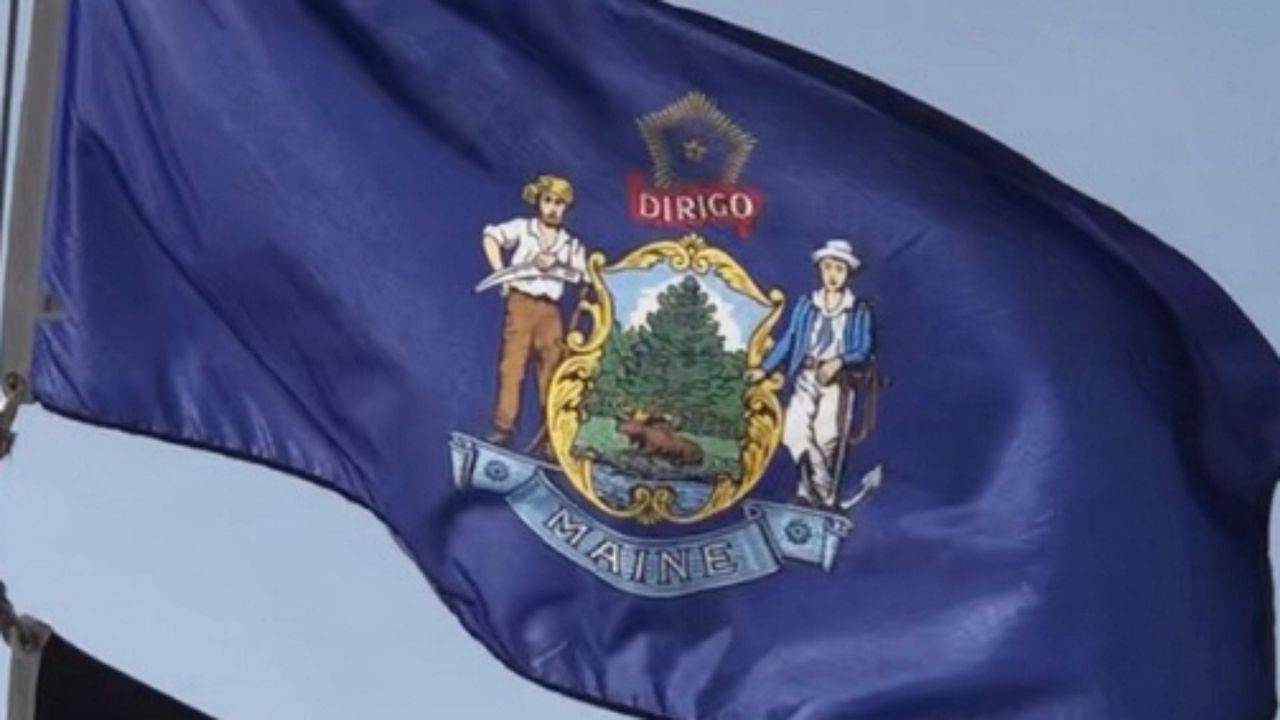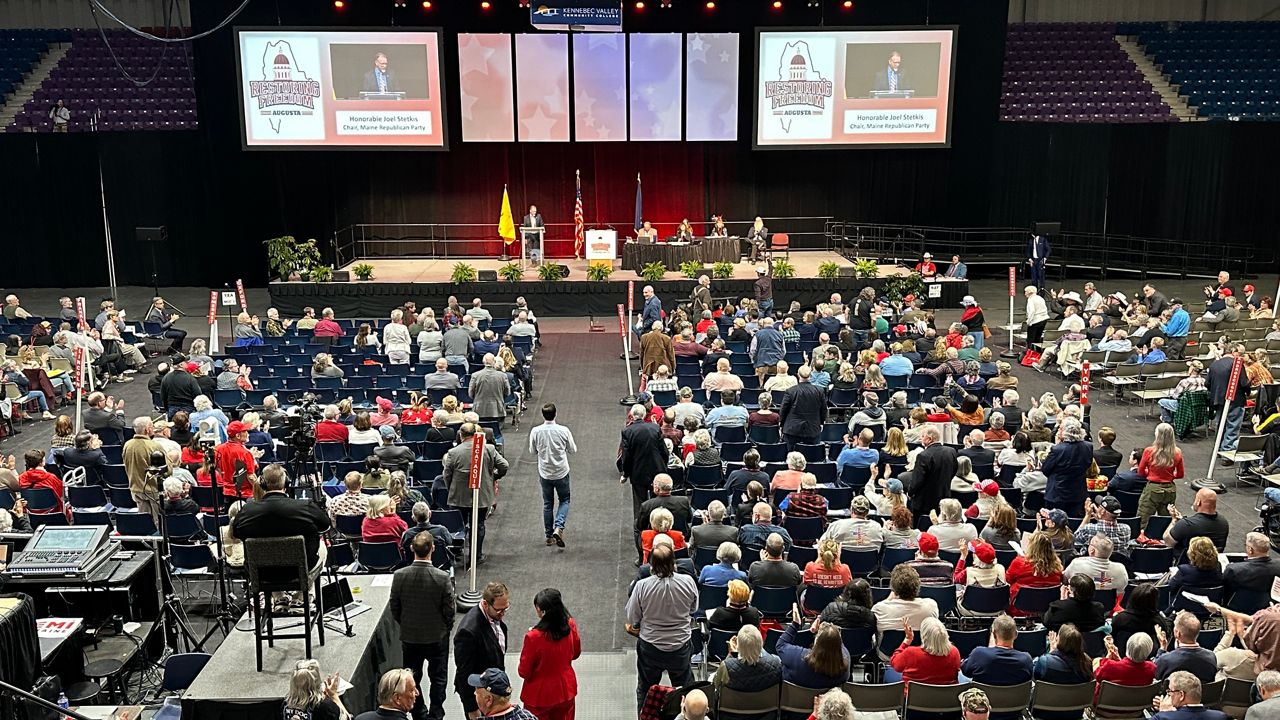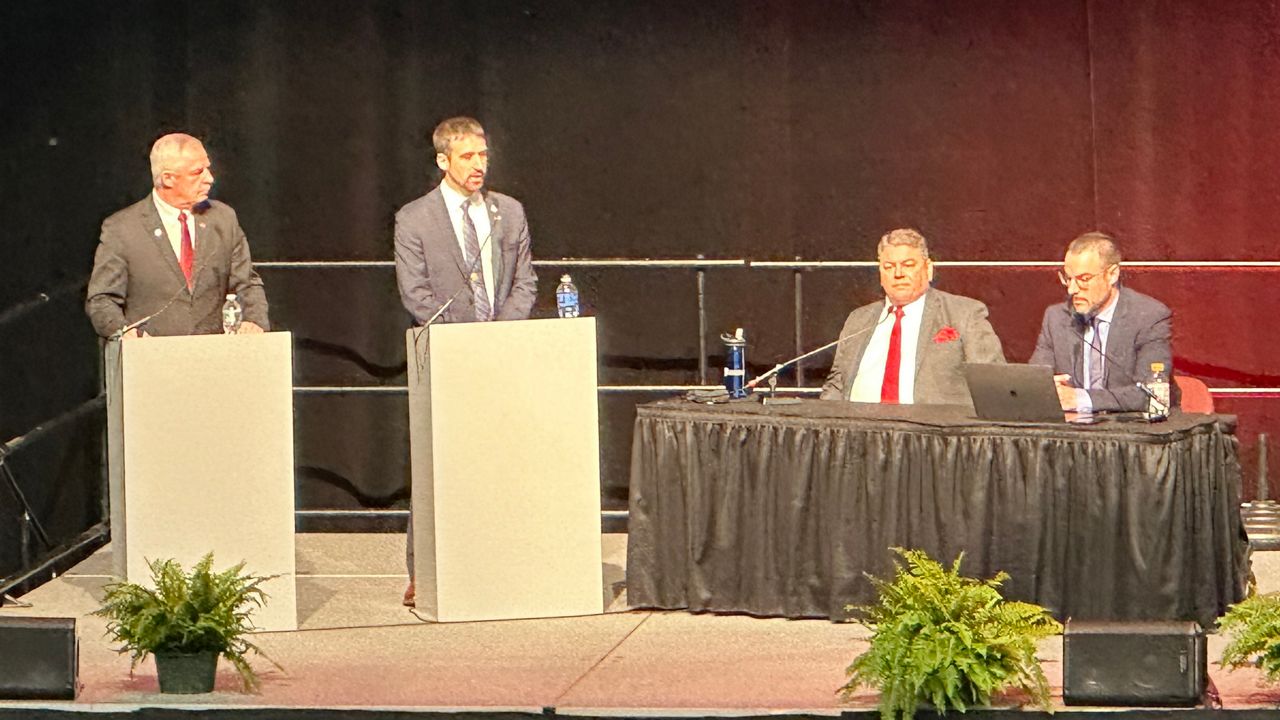Municipal officials urged lawmakers Friday to boost funding for general assistance programs that are considered the last resort to help Mainers pay for housing, food and medicine.
Leaders from Portland, South Portland, Lewiston, Bangor and other areas called for the state to increase its share of the cost of the program from 70% to 90%.
Lewiston Mayor Carl Sheline, speaking on behalf of 10 city mayors in southern and coastal Maine, said the increased reimbursement would “greatly help to alleviate some of the pressures being placed on our municipal budgets.”
The request comes at a time when federal COVID-19 funding is coming to an end, rent and food costs are high and asylum seekers fleeing devastation in their home countries need help.
In South Portland, the general assistance program cost the city $543,000 in 2017 and in the budget year that begins in June, it’s estimated to cost more than $3 million, City Manager Scott Morelli told the Legislature’s Health and Human Services Committee.
In Portland, general assistance costs have risen 345% from 2019 to 2022, Mayor Kate Snyder said, and the program is currently helping 3,800 people, most of whom are asylum seekers.
She said the city’s newly opened 208 bed homeless services center is 80% occupied by asylum seekers, the city’s 146-bed family shelter is “100% filled with asylum seekers” and the exposition center with 300 beds is serving asylum seekers.
“We do have significant homelessness in the city of Portland,” she said, noting that even with new shelters, there are still many people living in tents.
Other areas need help too, including Sanford and Brunswick, said Tobin Williamson, advocacy manager for the Maine Immigrants’ Rights Coalition.
“Just this week out of nowhere 15 families have been placed in Sanford in a couple of hotels,” he said. “There are 60 families moving to Brunswick. It’s a truly statewide issue.”
The committee considered 10 bills on Friday, all of which seek to make a variety of changes to the program.
Sen. Eric Brakey (R-Auburn) sponsored five of the measures, all of which propose limits on eligibility, including 45-day municipal residency or 180-day state residency.
“I don’t care where people are coming from,” he said. “I don’t care if they are coming from Massachusetts or half-way across the world, what I’m specifically trying to target with these is ensuring that we are prioritizing benefits for residents who have paid into the system and fallen on hard times and need a helping hand and we’re also not creating a poor incentive structure that’s creating a potentially infinite burden on our GA programs.”
No one testified in support of any of Brakey’s bills which have little chance of passing with Democrats in charge of both the House and Senate.
In opposition, Mufalo Chitam, executive director of the Maine Immigrants’ Rights Coalition, told the committee that resources are being “stretched thin” for municipalities and the state.
But it’s important to realize that this is a national problem, she said.
“This is an immigration situation that is now a national humanitarian crisis,” she said. “Responding to it by changing laws is unjust and it is bordering on being tone deaf.”
When it comes to reforming general assistance, the Maine Municipal Association is backing LD 1732, which increases the reimbursement rate to 90%, covers the costs of interpreters, creates a database to help track applicants and expenses and requires municipal officials to receive training.
Sen. Marianne Moore (R-Calais), who is sponsoring one of the bills to increase the reimbursement rate to 90%, said it’s not just an issue for large cities and towns.
“When there are no other avenues available, the program steps up to help keep people housed, fed and warm,” she said. “Our communities really need this additional funding.”








)